
Pre-Workout and Post-Workout Nutrition: What to Eat for Maximum Performance and Recovery
Science-backed guide to pre and post-workout nutrition. Learn optimal timing, what to eat before and after exercise, and meal ideas for peak athletic performance.
Verdu Team
The team behind Verdu, your AI-powered nutrition companion
You're committed to your training schedule, pushing yourself at every workout. But are you fueling your body the right way before and after exercise? The truth is, what you eat—and when you eat it—can make or break your performance and recovery.
The science of nutrient timing might seem overwhelming, with conflicting advice about anabolic windows, carb timing, and protein requirements. Let's cut through the confusion and give you clear, evidence-based guidance on exactly what to eat before and after your workouts to maximize both performance and recovery.
Why Nutrition Timing Matters for Athletic Performance
Your body is in a completely different metabolic state before, during, and after exercise. Understanding these differences is key to optimizing your nutrition strategy.
Before exercise, your body needs readily available energy to fuel your workout. During exercise, you're depleting glycogen stores (your body's stored carbohydrate). After exercise, your muscles are primed to absorb nutrients and begin the repair and recovery process.
According to the International Society of Sports Nutrition (ISSN), nutrient timing—the strategic consumption of nutrients at specific times—can provide a small but meaningful edge for athletic performance and body composition goals. While total daily nutrient intake remains the foundation, smart timing can optimize your results.

The Science of Nutrient Timing
The ISSN's position on nutrient timing emphasizes that the anabolic effect of exercise is long-lasting—at least 24 hours. This means you have more flexibility than you might think. However, strategic timing can still provide benefits, especially for serious athletes training multiple times per day or competing at high levels.
Pre-Workout Nutrition: Fueling Your Performance
What you eat before exercise sets the stage for your entire workout. The goal? Provide sustained energy, prevent hunger and fatigue, maintain optimal blood sugar levels, and minimize gastrointestinal discomfort.
Timing Your Pre-Workout Meal or Snack
According to Mayo Clinic, timing is crucial:
- Large meals: Eat 3 to 4 hours before exercising
- Small meals or snacks: Eat 1 to 3 hours before exercising
- Quick carb boost: Have a low-fiber, carbohydrate-containing snack 30 minutes before you're physically active
Why does timing matter? Large meals take longer to digest. If you eat too close to your workout, you may experience cramping, nausea, or sluggishness. Conversely, if you wait too long after eating, your blood sugar may drop, leaving you without energy for optimal performance.
What to Eat Before Your Workout
Your pre-workout meal or snack should emphasize easily digestible carbohydrates with moderate protein and minimal fat and fiber.
Why carbohydrates? Carbs are your body's preferred fuel source during moderate to high-intensity exercise. They're stored as glycogen in your muscles and liver, providing readily available energy when you need it most.
Mayo Clinic recommends avoiding high-fat and high-fiber foods before exercise, as they take longer to digest and may cause gastrointestinal discomfort while you're active.
Best Pre-Workout Foods
3-4 Hours Before (Larger Meals):
- Grilled chicken with brown rice and roasted vegetables (balanced carbs, protein, easy to digest)
- Oatmeal with banana, berries, and a scoop of protein powder (sustained energy from complex carbs)
- Whole-grain toast with eggs and avocado (balanced macros with moderate healthy fat)
- Turkey and veggie wrap with sweet potato (portable, balanced, nutrient-dense)
1-2 Hours Before (Small Meals):
- Greek yogurt with granola and berries (20g+ protein, quick carbs)
- Banana with peanut butter (quick energy with a bit of protein)
- Protein smoothie with fruit and oats (easily digestible, customizable)
- Rice cakes with almond butter and honey (quick carbs, light protein)
30 Minutes Before (Quick Fuel):
- Banana or apple (fast-digesting natural sugars)
- Energy bar (look for 20-30g carbs, minimal fiber)
- Sports drink or juice (immediate carbohydrate availability)
- Handful of pretzels or crackers (simple carbs for quick energy)
Morning Exercisers: Special Considerations
If you exercise first thing in the morning, Mayo Clinic recommends getting up early enough to finish breakfast at least one hour before your workout. This gives your body time to digest and raises your blood sugar, providing energy for your session.
Good morning pre-workout options:
- Whole-grain cereals or bread
- Low-fat milk or yogurt
- Banana or other easily digestible fruit
- Pancakes or waffles (light toppings)
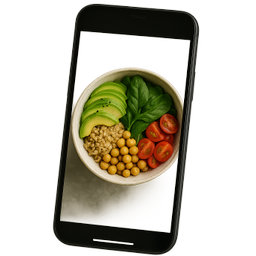
Never Miss Your Pre-Workout Fuel Window
One of the biggest challenges with pre-workout nutrition? Remembering to eat at the right time. When you're juggling a busy schedule, it's easy to realize—5 minutes before your gym session—that you haven't eaten in hours.
Verdu helps you time your nutrition perfectly. Log your workouts and meals, and get personalized reminders to fuel up at the optimal time before training. Plus, snap a photo of your pre-workout meal to instantly see if you're hitting the right carb and protein targets for sustained energy.
Post-Workout Recovery Nutrition: Rebuilding and Repairing
After your workout, your body is in recovery mode. Your muscles have been broken down, glycogen stores are depleted, and your body is primed to absorb nutrients efficiently. This is your opportunity to accelerate recovery and maximize the adaptations from your training.
The Post-Workout Window: How Much Time Do You Really Have?
The traditional advice was to consume protein within 30 to 60 minutes post-workout or risk missing out on gains. The reality? It's more nuanced.
According to Harvard Health, if you're trying to maximize muscle growth and boost recovery, aim to eat a high-protein snack within 30 to 60 minutes of a strength-training session.
Additionally, the American College of Sports Medicine suggests consuming 15 to 25 grams of protein within one hour after vigorous exercise to support muscle recovery and repair.
However, the ISSN research indicates that the anabolic effect of exercise is long-lasting—at least 24 hours—meaning you have more flexibility than once thought. The key is consistency: don't skip post-workout nutrition entirely.
Gender Differences in Post-Workout Nutrition Timing
Interestingly, research from Harvard Health shows that women and men may require different nutritional approaches to promote muscle recovery after exercise:
- Women should optimally refuel within 45 minutes post-workout
- Men have up to 3 hours post-workout to refuel
Why the difference? Hormone differences drive women's faster post-workout muscle breakdown, making timely nutrient intake more critical for female athletes.
What to Eat After Your Workout
Your post-workout meal should include two key macronutrients:
- Protein (15-40g): To repair muscle tissue and stimulate muscle protein synthesis
- Carbohydrates: To replenish glycogen stores depleted during exercise
The ratio matters: For most types of exercise, aim for a 3:1 or 4:1 ratio of carbs to protein. Endurance athletes may benefit from higher carb ratios, while strength athletes should prioritize protein.
Best Post-Workout Foods
Complete Meals (Within 1-2 Hours):
- Grilled salmon with quinoa and roasted vegetables (high-quality protein + complex carbs + micronutrients)
- Chicken breast with sweet potato and steamed broccoli (lean protein + carbs + fiber for satiety)
- Turkey and hummus wrap with veggies and fruit (balanced, portable, nutrient-dense)
- Tofu stir-fry with brown rice and mixed vegetables (plant-based protein + carbs + phytonutrients)
- Greek yogurt parfait with granola, berries, and honey (fast protein + quick and slow-digesting carbs)
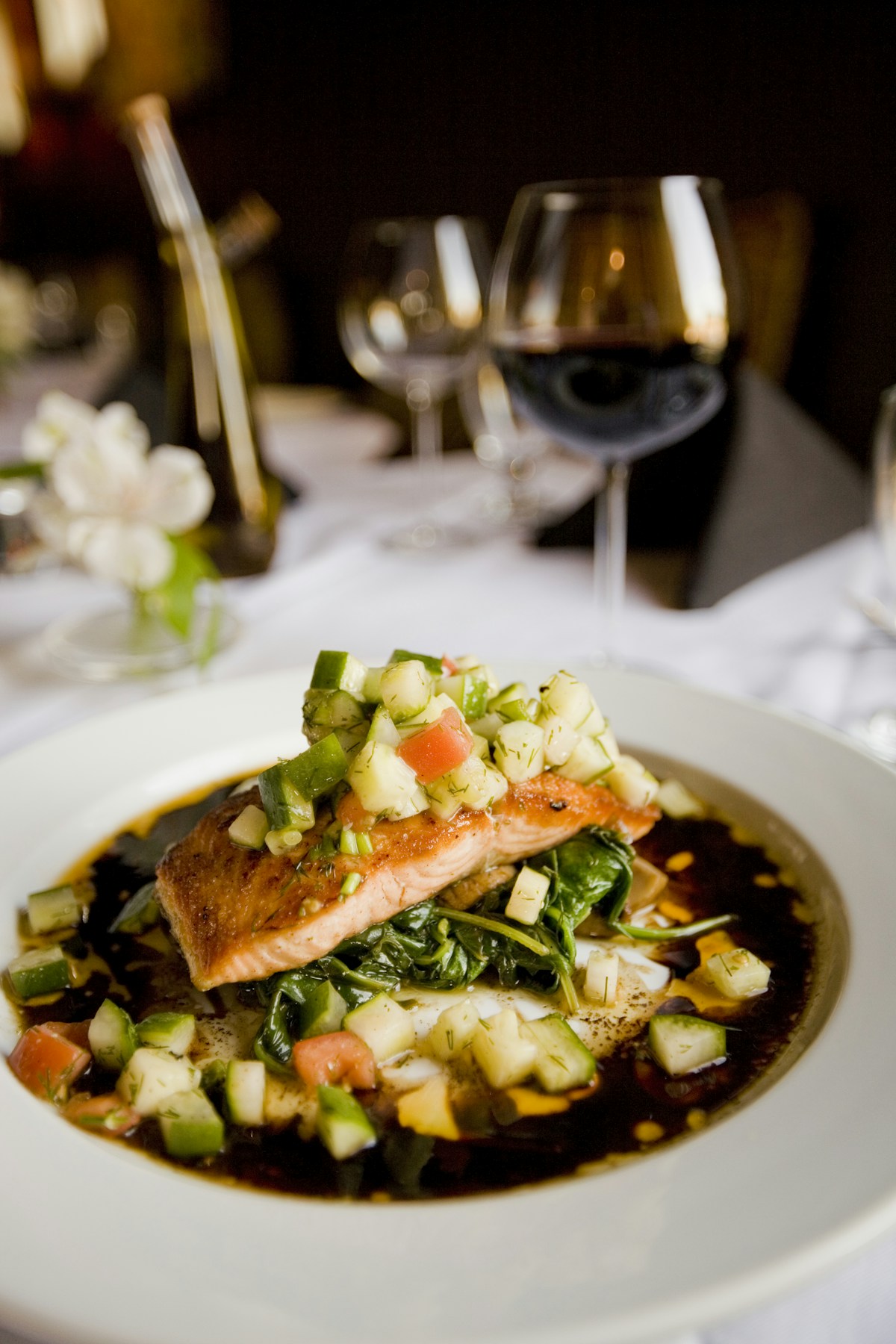
Quick Post-Workout Snacks (Within 30-60 Minutes):
- Protein shake with banana (25-30g protein + 30-40g fast-digesting carbs)
- Chocolate milk (natural 3:1 carb-to-protein ratio, research-backed recovery drink)
- Rice cakes with cottage cheese and berries (quick carbs + casein protein)
- Hard-boiled eggs with whole-grain crackers and fruit (portable, balanced, easy to prep)
- Protein bar with at least 15g protein (convenient, check for adequate carbs)
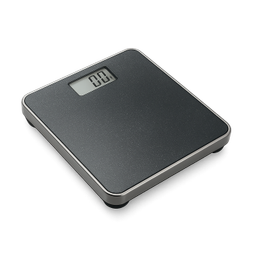
Carbs + Protein = Recovery Magic
Don't make the mistake of eating only protein after your workout. While protein is critical for muscle repair, carbohydrates are equally important for replenishing glycogen—your body's primary energy source during exercise.
Without adequate carbs post-workout, your body may break down muscle tissue for energy, undermining your training progress. Aim for 0.5-0.7 grams of carbohydrate per pound of body weight within two hours after exercise, paired with 15-40 grams of protein.
Complete Pre-Workout and Post-Workout Meal Plans
Let's put this into practice with complete, actionable meal plans for different training scenarios.
Scenario 1: Early Morning Workout (6:00 AM Training)
Pre-Workout (5:00-5:30 AM):
- Banana with 1 tbsp almond butter
- Small glass of water
Post-Workout (7:00-7:30 AM):
- 3 scrambled eggs with spinach
- 1 cup oatmeal with berries and honey
- Total: 30g protein, 60g carbs
Scenario 2: Lunch Hour Workout (12:00 PM Training)
Pre-Workout (10:30-11:00 AM Snack):
- Greek yogurt with granola (20g protein, 35g carbs)
- Apple
Post-Workout (1:00-1:30 PM Lunch):
- Grilled chicken breast (6 oz)
- Quinoa (1 cup cooked)
- Roasted sweet potato and vegetables
- Total: 50g protein, 80g carbs
Scenario 3: Evening Workout (6:00 PM Training)
Pre-Workout (4:00-4:30 PM Snack):
- Rice cakes with peanut butter
- Banana
Post-Workout (7:00-7:30 PM Dinner):
- Salmon fillet (6 oz)
- Brown rice (1 cup)
- Steamed broccoli and carrots
- Side salad with olive oil dressing
- Total: 45g protein, 70g carbs
Scenario 4: Two-A-Day Training (Morning & Evening Sessions)
Morning Pre-Workout (5:30 AM):
- Energy bar (20g carbs, 5g protein)
Morning Post-Workout (7:00 AM):
- Protein smoothie: whey protein, banana, oats, almond milk (30g protein, 50g carbs)
Lunch (12:00 PM):
- Turkey wrap with veggies and hummus
- Fruit salad
- (40g protein, 60g carbs)
Evening Pre-Workout (5:00 PM):
- Greek yogurt with honey (15g protein, 25g carbs)
Evening Post-Workout (7:30 PM):
- Lean beef stir-fry with mixed vegetables over rice (50g protein, 70g carbs)
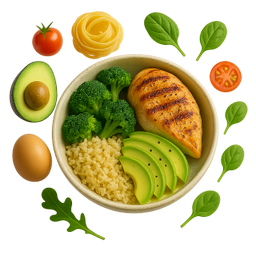
Get Personalized Pre & Post-Workout Meal Ideas
Planning varied, nutrient-timed meals around your training schedule can feel like a full-time job. You're trying to hit specific macro targets at specific times, all while keeping meals interesting and delicious.
Verdu generates personalized meal suggestions based on your training schedule and recovery needs. Tell Verdu you need a pre-workout snack in 90 minutes or a post-workout meal with 35g protein and 60g carbs—and get instant recipe ideas tailored to your preferences, dietary restrictions, and available ingredients. Fueling your performance has never been easier.
Common Pre and Post-Workout Nutrition Mistakes
Even experienced athletes make these nutrition timing errors. Avoid these pitfalls to optimize your training results:
1. Eating Too Close to Your Workout
The Mistake: Downing a heavy meal 30 minutes before hitting the gym
Why It's a Problem: Blood is diverted to your digestive system instead of your working muscles, leading to cramping, nausea, and poor performance
The Fix: Follow the 3-4 hour rule for large meals, 1-2 hours for moderate meals, and stick to easily digestible carbs if you're eating within 30-60 minutes of training
2. Training Completely Fasted (Unless Intentional)
The Mistake: Rolling out of bed and hitting a high-intensity workout with zero fuel
Why It's a Problem: While fasted training has a place for some goals (fat adaptation, metabolic flexibility), it can impair performance, especially for high-intensity or long-duration workouts
The Fix: If you train first thing in the morning, have at least a small carb source (banana, energy bar, sports drink) to raise blood sugar and provide immediate fuel
3. Skipping Post-Workout Nutrition
The Mistake: Finishing your workout and waiting 3-4 hours before eating
Why It's a Problem: Your muscles are most receptive to nutrients immediately post-exercise. Delaying too long—especially for women (within 45 minutes) or after particularly intense sessions—can slow recovery and adaptation
The Fix: Have a post-workout snack or meal within 1-2 hours of training. Women should aim for the earlier end of this window.
4. Only Eating Protein After Workouts
The Mistake: Chugging a protein shake and calling it done
Why It's a Problem: Without carbohydrates, your depleted glycogen stores remain depleted, potentially impairing your next workout and slowing overall recovery
The Fix: Pair protein with carbs in a 3:1 or 4:1 ratio (carbs to protein) to optimize both muscle repair and glycogen replenishment
5. Ignoring Individual Tolerance
The Mistake: Following a generic nutrition plan without considering your personal digestive system
Why It's a Problem: Everyone's gut responds differently to pre-workout foods. What works for one athlete may cause GI distress for another
The Fix: Experiment during training (never on race/competition day) to find what foods, timing, and quantities work best for your body. Keep a training and nutrition log to identify patterns.
6. Overcomplicating Things with Supplements
The Mistake: Relying heavily on pre-workout powders, BCAAs, intra-workout drinks, and recovery supplements while neglecting whole food nutrition
Why It's a Problem: Whole foods provide not just macros, but also vitamins, minerals, fiber, and phytonutrients that supplements lack. Plus, you're spending money on products with often minimal benefit beyond what food provides
The Fix: Get 80-90% of your nutrition from whole foods. Use supplements strategically only where they provide clear, evidence-based benefits (like whey protein for convenience or electrolytes for endurance events).
Practical Takeaways: Your Workout Nutrition Action Plan
Ready to optimize your nutrition timing for better performance and faster recovery? Here's your step-by-step action plan:

5 Steps to Master Workout Nutrition Timing
- Plan your pre-workout timing: Large meal 3-4 hours before, small snack 1-2 hours before, or quick carbs 30 minutes before training
- Prioritize easily digestible carbs before training: Avoid high-fat and high-fiber foods that may cause GI distress during your workout
- Eat protein + carbs within 1-2 hours post-workout: Women should aim for the earlier end (45 minutes), especially after intense sessions
- Use the 3:1 or 4:1 carb-to-protein ratio for recovery meals: Don't skip carbs—they're essential for glycogen replenishment
- Experiment and personalize: Track your meals, timing, and how you feel during workouts to find your optimal nutrition strategy
The Bottom Line
Pre and post-workout nutrition doesn't have to be complicated. The fundamentals are straightforward:
Before Training:
- Time your meals appropriately (3-4 hours for large meals, 1-2 hours for snacks)
- Emphasize easily digestible carbohydrates
- Include moderate protein
- Minimize fat and fiber
After Training:
- Eat within 1-2 hours (women closer to 45 minutes)
- Combine protein (15-40g) with carbohydrates (3:1 or 4:1 ratio)
- Replenish glycogen stores to support your next workout
- Don't skip post-workout nutrition, even if you're trying to lose weight
Most Importantly:
- Total daily nutrition matters more than perfect timing
- Consistency beats perfection
- Listen to your body and adjust based on your individual response
- Use training sessions to experiment; save race/competition days for proven strategies
You don't need expensive supplements or complicated meal plans. With smart timing, whole food sources, and a personalized approach, you can fuel optimal performance and recovery.
Ready to take the guesswork out of workout nutrition?
Download Verdu to get instant macro analysis from meal photos, personalized pre and post-workout meal suggestions, and smart reminders to fuel and recover at the right times. Train hard, eat smart, recover faster—all with AI-powered guidance that adapts to your schedule and goals.
Want more nutrition insights? Check out our guide on High-Protein Foods for Athletes or learn about Intermittent Fasting and Meal Timing to optimize your nutrition strategy.
Related Articles

15+ High-Protein Foods for Active Lifestyles: Beyond Chicken and Eggs
Tired of chicken and eggs? Discover 15+ diverse high-protein foods for athletes and active individuals. Learn protein timing, meal ideas, and smart tracking strategies.
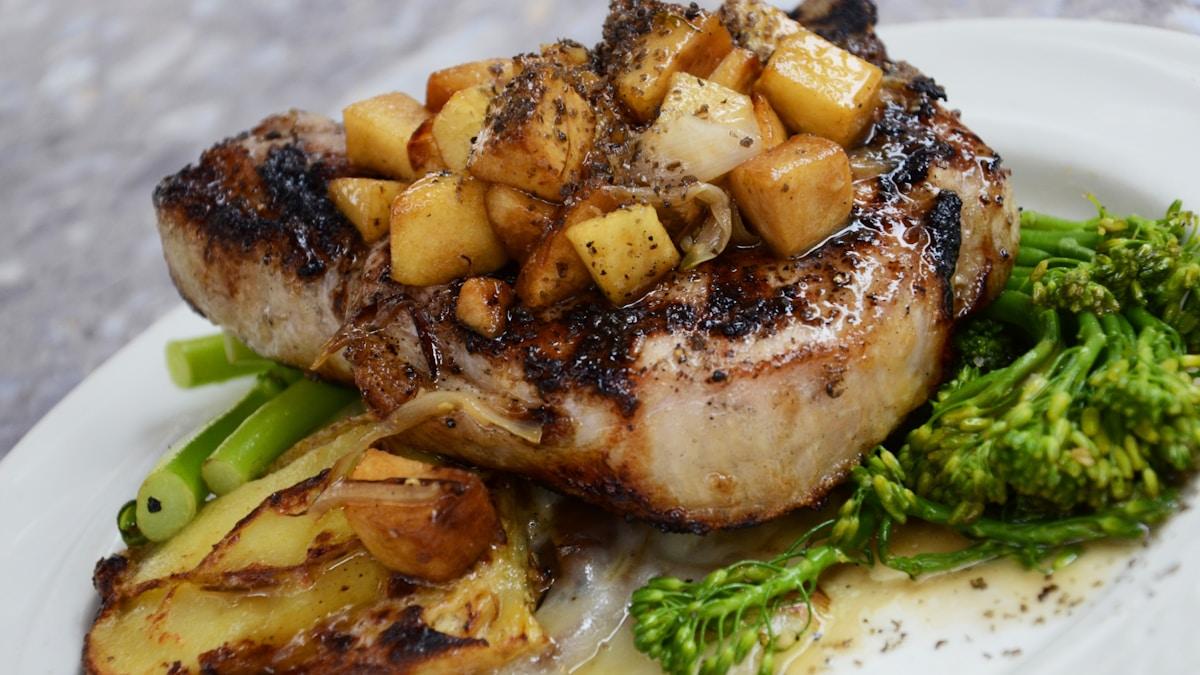
High-Protein Foods for Athletes: Complete Guide to Recovery & Performance
Learn how much protein athletes need, the best sources, and optimal timing for muscle recovery. Science-backed guide with meal ideas.
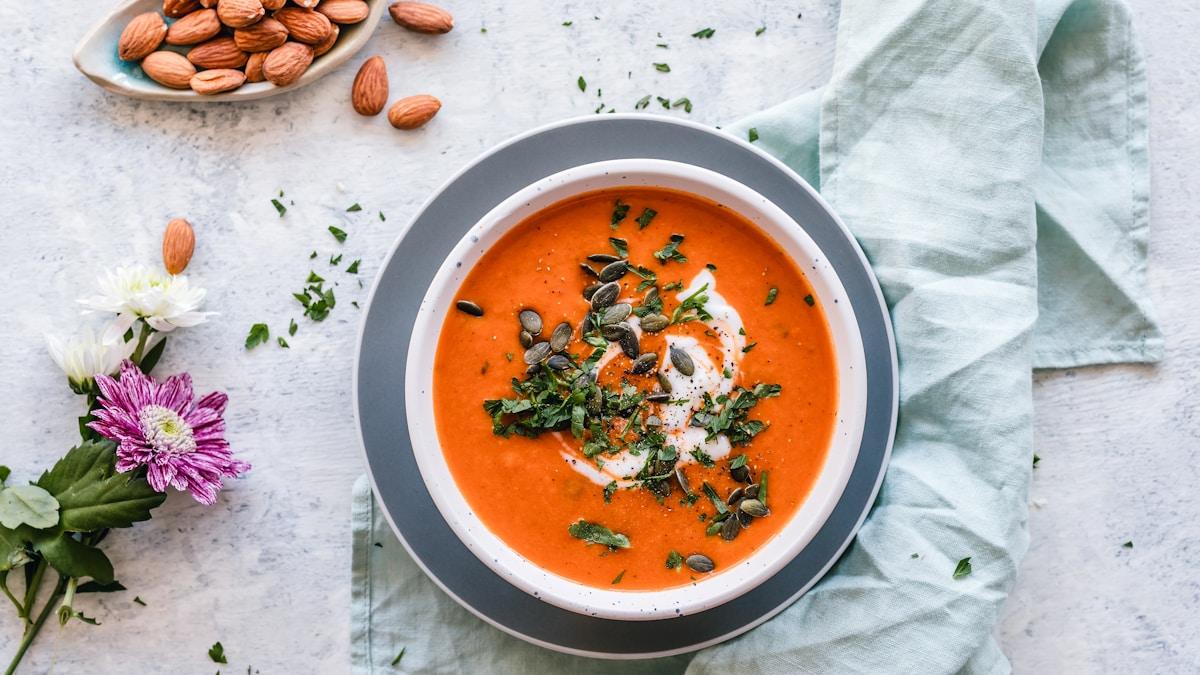
Intermittent Fasting: Does Timing Your Meals Really Work?
Science-backed guide to intermittent fasting: 16:8 method, health benefits, who should try it, and practical tips to start meal timing successfully.